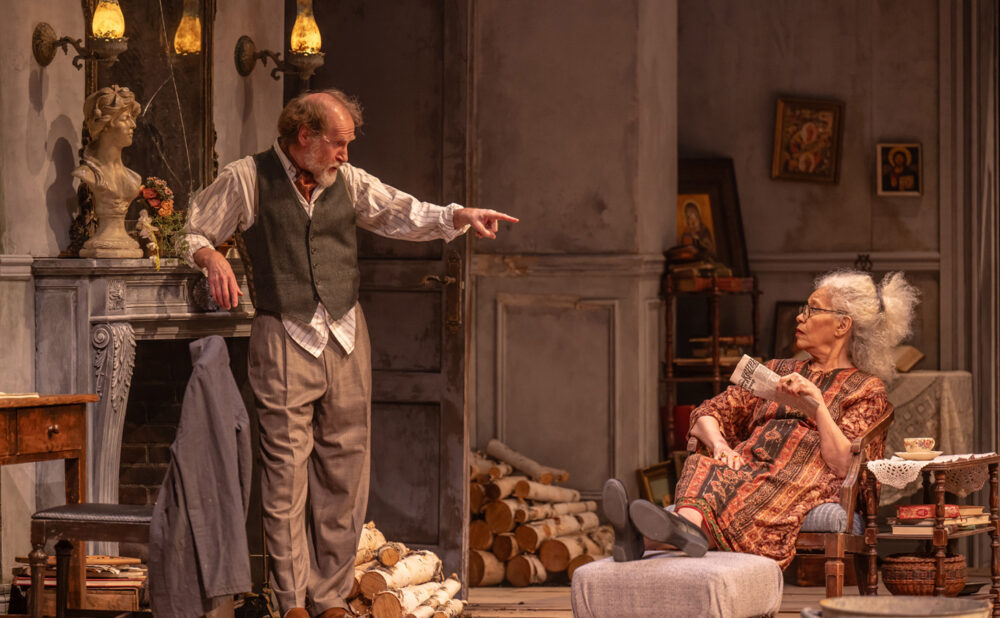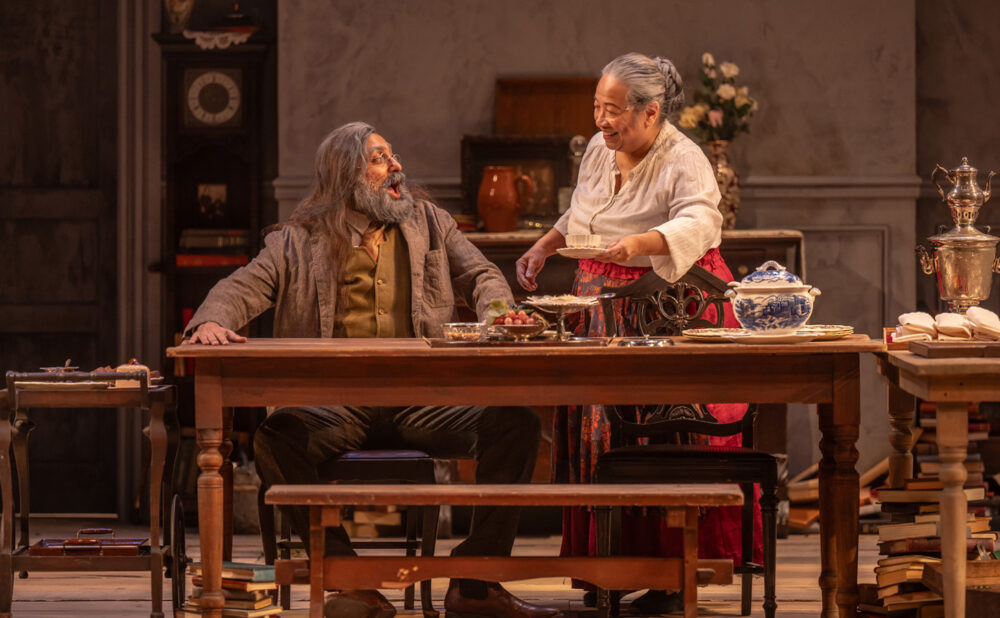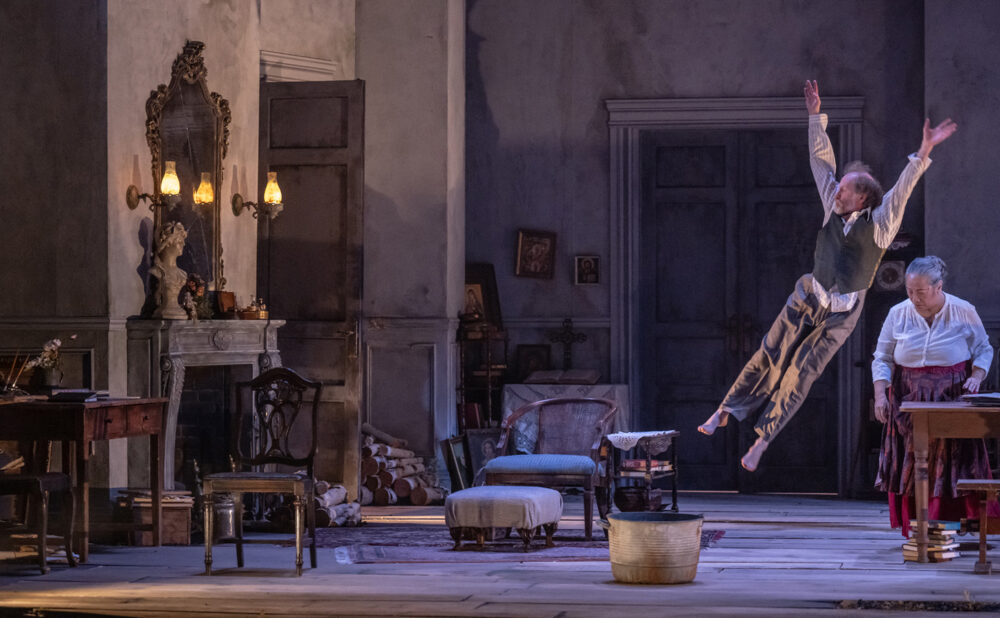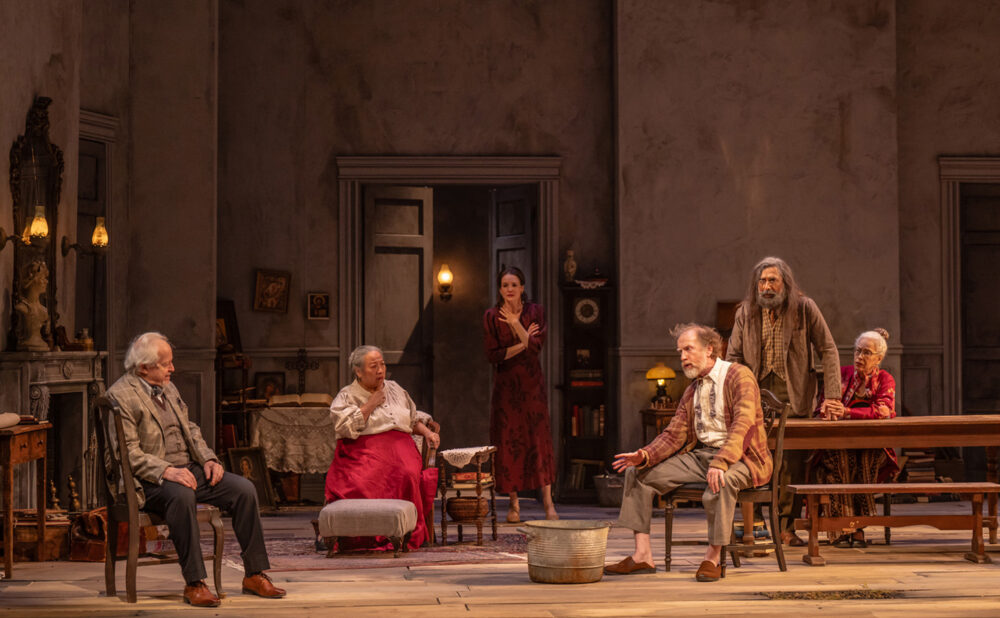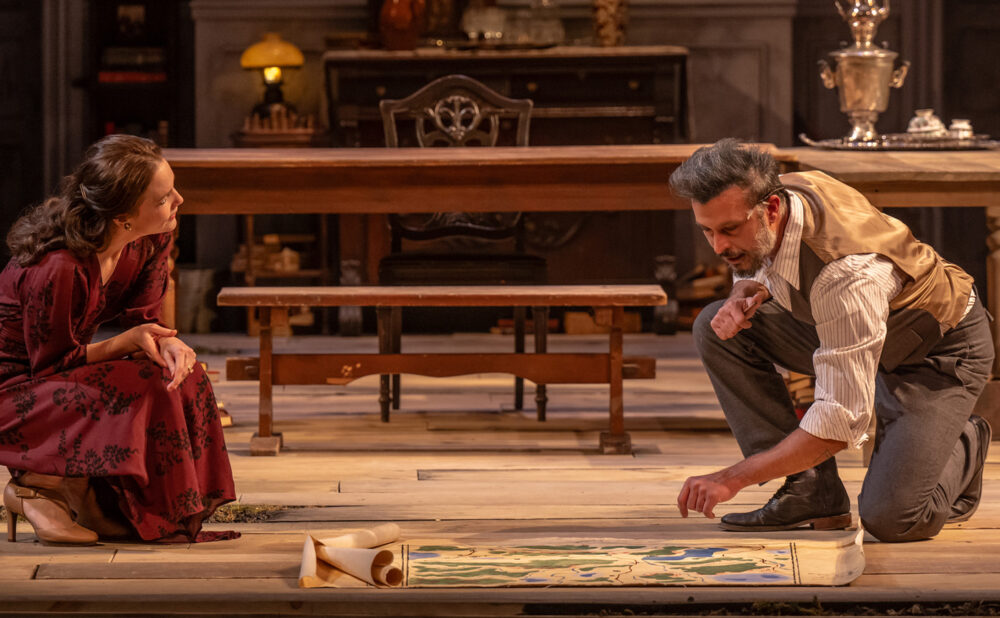Review: ‘Uncle Vanya’ reveals new layers at Mirvish
Crow’s Theatre production makes successful transfer to larger house
What: Uncle Vanya
Where: CAA Theatre, 651 Yonge St.
When: Now, until Sun., Feb. 25
Highlight: bahia watson ’s dazzling performance as Sonya
Rating: NNNN (out of 5)
Why you should go: Lush Chris Abraham production offers chance to be immersed
CHEKHOV at Mirvish — what century is it? I raise the question with affection. Whatever your opinion on the performance of classics today, it’s heartening to see an accomplished drama with aspirations toward seriousness transfer from Crow’s Theatre, easily our hottest not-for-profit, to the CAA Theatre, a 700-seat commercial house where tens of thousands more audience members can get in on the fun.
The play is Uncle Vanya, adapted by Liisa Repo-Martell and directed by Chris Abraham. The production, meanwhile, is lush and well-oiled, its hyper-detailed, Dora-winning period set (by Julie Fox and Joshua Quinlan) juxtaposed with performances so vivid they feel essentially contemporary. I’ve seen the show four times now, including twice in the Crow’s premiere, where it was staged in the round. The current iteration uses a proscenium setup, and, yes, a degree of intimacy may be lost. But Abraham is allowed far greater control over the stage image, meaning his overall vision comes through sharper. It’s a perfectly acceptable trade-off producing rich and layered results.
As at Crow’s, an endlessly watchable Tom Rooney takes on the title role, while a dazzling bahia watson plays his niece, Sonya. The characters have spent their lives working to sustain the grand but dilapidated family estate where they live — so it’s a shock when Sonya’s father, a celebrated professor (Eric Peterson), comes around with talk of selling the place. Repo-Martell retains that basic conceit from Chekhov yet axes anything alienatingly Russian or 19th century.
This is a production that gets sadder on each viewing. Though the actors often speak in comic rhythms, it’s become clear to me that this isn’t really a case of the production trying to be funny; it’s the characters masking their despair. When Vanya dances ballet to classical music, I don’t see someone letting loose and enjoying themselves but a regretful man who wishes he’d trained in dance. And, the play’s potentially optimistic ending, in which a teary Sonya comforts Vanya by telling him “We’ll find peace” contains a dark desperation.
Abraham has carefully calibrated the Mirvish staging to point the audience’s eye toward the presence of such nuance. For instance, when Astrov (Ali Kazmi), a country doctor with whom Sonya is helplessly smitten, says farewell for the foreseeable future, lighting designer Kimberly Purtell adds a subtle dose of extra illumination to Sonya’s face. Though, on the surface, the doctor’s goodbye is a warm occurrence, the light encourages consideration of the disappointment Sonya is attempting to obscure. Through such gestures, the essentially naturalistic production develops a disarming psychological dimension.
The common wisdom is that riskier productions of classics uproot the plays from their original settings and deconstruct them. This Uncle Vanya is not that. Instead, its painterly design is almost a love letter to the old. And, as vital as the other line of attack can be, I find Abraham’s approach difficult to knock. Realism may have a sour reputation, but in a world plagued by social media’s breathless call, immersion is a powerful balm.

